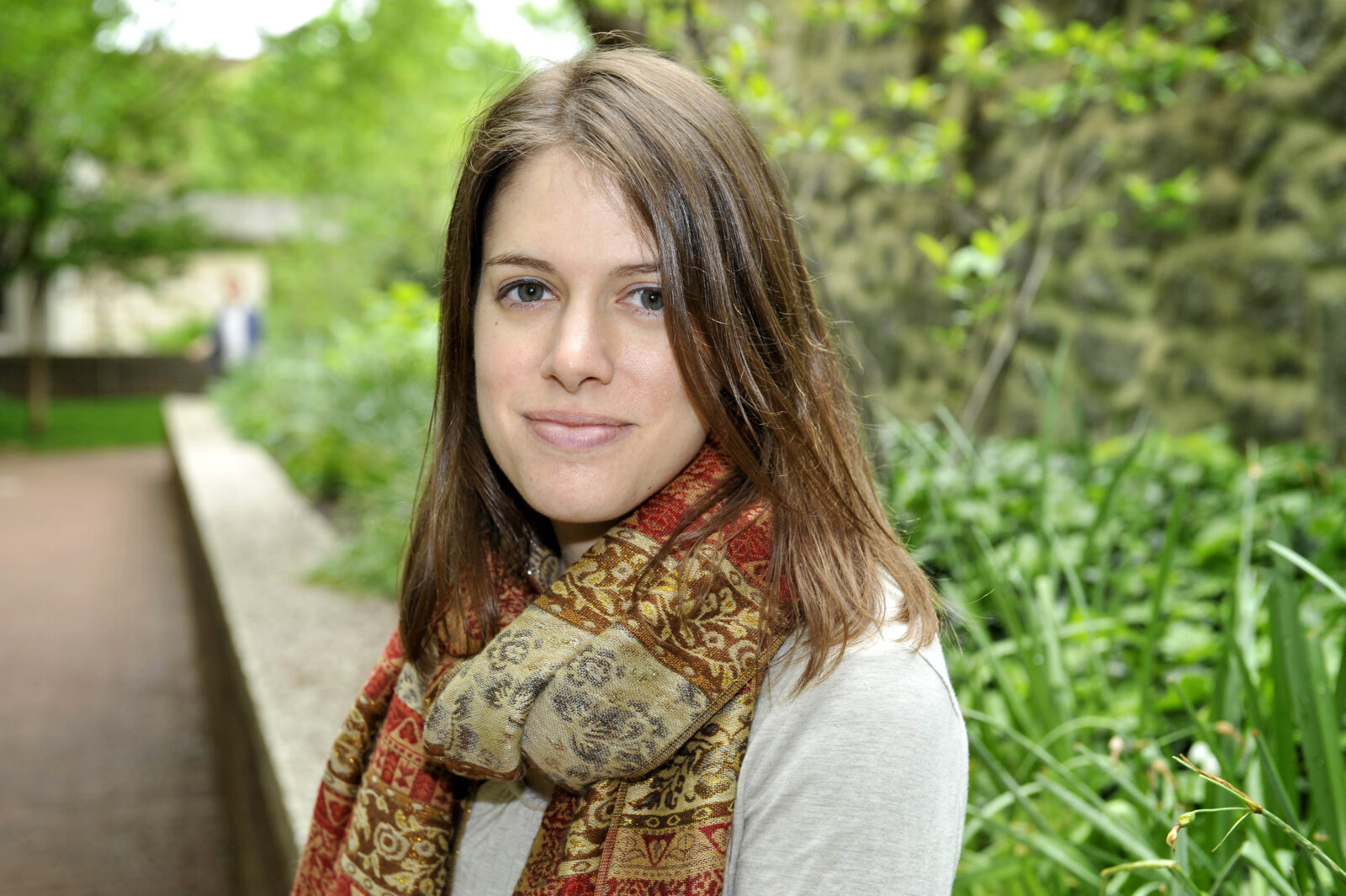News Details
Helping Cancer Patients From Two Perspectives

Authored by: Lisa Dugan
Photography by: Candace diCarlo
Student Life
10/01/12
From electronic medical records to apps that help patients monitor their blood pressure, digital technology has become an important component of health care delivery. But can an online blog improve outcomes for cancer patients? That is the question MSW/MPH candidate Alison Petok is seeking to answer.
A graduate of Washington University, Petok worked for Planned Parenthood before attending Penn. Passionate about reproductive health and access to care, she knew she wanted to study public health but felt a solid foundation in social work was also important. “I was particularly interested in the racism sequence at SP2 because so many of the people served in urban health care settings face adversity because of their race or economic situation,” she says.
The dual degree program has allowed Petok to pursue her interests in both the social and scientific aspects of urban health-improving access to care while simultaneously conducting public health research. For her field placement in an outpatient Hematology/Oncology center, she provides supportive counseling as well as resource referral, helping underinsured patients navigate the healthcare system. She is also conducting a qualitative study exploring the use of blogging with cancer patients for her Public Health Capstone.
For the study, Petok enrolled 12 participants who were asked to use a blogging platform called CarePages for two months and to participate in semi-structured guided interviews. She is analyzing their responses to explore whether blogging helps patients cope with challenges such as receiving a diagnosis and treatment-related side effects. She is also looking at whether blogging reduces stress related to communication. “Cancer patients and their spouses are often overwhelmed with constant calls from family and friends,” she explains. “The blog is an interactive tool that allows them to provide updates and receive feedback and support in a less intrusive way.”
Petok says one of the benefits of the degree program is the diversity of students in her classes. “Many of the public health students are working doctors or lawyers returning for a second degree. They bring an enormous amount of knowledge and experience to the table. At the same time, I enjoy being able to offer a social work perspective in a public health environment.”